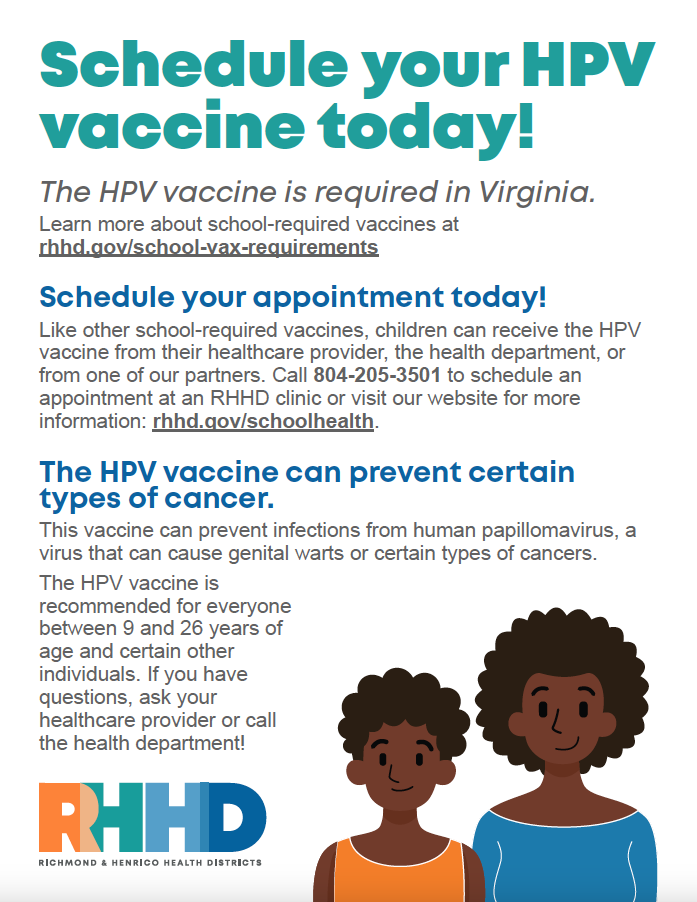January is Cervical Health Awareness Month, which means it’s an important opportunity to review the strategies we have for preventing cervical cancer, starting with screening and vaccination for Human papillomavirus (HPV).
HPV is the most common STI in the United States. When it’s not detected or treated, it can cause cancers like cervical cancer. In 2020, CDC reported 11,542 new cases of cervical cancer and 4,272 deaths from cervical cancer. And cervical cancer mortality rates are higher for Black women and women who live further from medical care.
The good news is that cervical cancer can be preventable! Tools like screening programs and the HPV vaccine have led to a 75% decrease in the occurrence of cervical cancer since the 1970s. RHHD Medical Director Dr. Saritha Gomadam reminds residents of the steps they can take to protect themselves and loved ones from cervical cancer.
Get screened.
“Screening tests can help find precancerous lesions or cervical cancer itself. These tests include a pap smear, which looks for changes in the cervix that could become cervical cancer over time if they aren’t treated, and a specific HPV test, which finds the virus itself. The two tests can be done at the same time in a primary care clinic or a gynecologist’s office.
In the early stages of cervical cancer, not all people have symptoms, and prevention is better than a cure! It can feel a bit uncomfortable to get a pap smear, and what I want people to know is that these screenings are safe procedures that can help us catch and treat precancerous lesions before disease has a chance to spread.
Your primary care provider or gynecologist can help you decide when it’s the right time for a screening.”
Get vaccinated.
“Vaccination at a younger age has also been shown to reduce the incidence of cervical cancer. Routine HPV vaccination is recommended at 11-12 years of age but can be administred starting at 9 years of age. The best time for HPV immunization is before a person becomes sexually active. This is because HPV is a virus that is transmitted sexually and the vaccine is most effective in people who have not been infected with HPV. The HPV vaccine is offered in most pediatric clincis and other primary care clinics. You can talk to your health care provider or pediatrician for your children about recommendations and obtaining the vaccine.”
HPV vaccines and screening can be valuable even if you don’t have a cervix.
In addition to screening and vaccination, other important steps for preventing cervical cancer include using condoms during sex and avoiding smoking.
And people with cervixes aren’t the only people who benefit from HPV screening and vaccination. HPV can lead to other types of cancers, especially if you have tested positive for other sexually transmitted infections.
Cervical health needs to start early; helping one person stay healthy keeps the whole community healthy! For information about RHHD’s cervical health resources and HPV vaccination schedule, call 804-205-3501.
